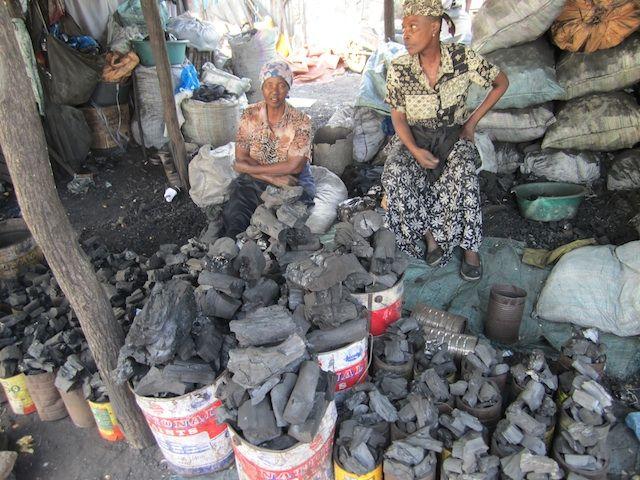Boosting collaboration efforts for renewable household energy in Mozambique: the ‘Energy Africa Mozambique Compact’
The Energy Africa Mozambique
Compact was recently signed by the Belgium Development Cooperation, the governments
of Mozambique, The Netherlands and Norway, DFID, GIZ, African Development Bank,
USAID, Italian Cooperation and private stakeholders. What this compact entails
and why Belgium participates in it are briefly highlighted here.
The developmental role of access to energy
Access to energy
affects all aspects of sustainable development – social, economic, and
environmental; this pertains for instance to demographics, livelihoods, health,
education or gender relations. Most people in Southern Africa rely on
traditional energy sources such as wood or other biomass. Overall just 24
percent of Southern Africa’s population, and only five percent in rural areas,
have access to electricity; this is far less than in Eastern or West Africa. The
poorest people are most vulnerable to both energy poverty and climate change. It
is against this background that the United Nations launched the Sustainable
Energy for All initiative (SE4All) to provide modern energy to everybody by
2030. SE4All intersects with the United Nations Sustainable Development Goal
for Energy (SDG7) and the 2015 Paris Agreement on Climate Change, where the
global community commits to sustainable energy development.
Daily
household energy challenges in Mozambique
In Mozambique, only 27
percent of the population of 29.5 million has access to electricity, predominantly in urban areas. As much as 95 percent of the households use firewood or
charcoal daily for cooking. The greenhouse gas emissions associated with the
production and consumption of charcoal are high and projected to grow further. The
main sources of non-electric light on the other hand are torches, firewood and
kerosene. It is estimated that only 10 per cent of households have access to
solar energy in the form of solar pico- or home systems.
The Mozambican
government has endorsed the Sustainable Energy for All (SE4ALL) targets of
Universal Energy Access by 2030. Projections show however that only 50 percent
of the population can have access to the electricity grid by that year. There
remains therefore a huge challenge and opportunity in addressing the remaining
half through off-grid provisions. Mozambique has a total Renewable Potential of
over 23,026 GW; and solar energy is the most abundant renewable resource with a
potential of 23,000 GW. However, the solar off-grid household market is still mainly driven by
donors and the Mozambican Energy Fund (FUNAE), an agency within the Ministry of
Mineral resources and Energy (MIREME). Currently, the renewable energy industry
is not well aligned with the public sector and other energy stakeholders in
Mozambique. This should improve with the creation in 2017 of the ‘Mozambican
Association of Renewable Energies’ (AMER). Barriers to the development of an
off-grid household solar system market have been identified as follows: import
duties and taxes on solar products; no certification or national quality
standards for solar homes systems; need for innovative supply chain finance
mechanisms; low institutional coordination among different actors; a need to adapt
policies for the off-grid sector; end-users’ low awareness and difficulties to
pay; lack of skilled human resources (especially at decentralised level); and high
logistics and market knowledge costs (lack
of research and studies).
Donors commit to the coordinated promotion of
household solar systems markets
In November 2017, under
the Partnership Agreement between the governments of Mozambique and United
Kingdom, the Energy Africa Mozambique
Compact (‘Compact’) was published. The main strategic objective of the
Compact is to develop a market for the new and
renewable energy sector in Mozambique. Emphasis is put on an active supporting
role of government, active private sector participation, and assistance of
donors where relevant. The Compact sets out key actions for the further elaboration
of such an approach, potential coordination initiatives, a first hint of prioritization
and an implementation plan until mid-2019.
Ongoing interventions
by the Belgian development cooperation in the renewable energy sector feature in
the Compact as part of the potential coordinated support. The Renewable
Energy for Rural Development Phase 2 (RERD2) project with FUNAE aims to
finance the construction of off-grid systems and demonstrate the most suitable
management mode for (large) mini-grids. Digitalisation of pre-payment metering
and monitoring systems is foreseen. The capacity building component is targeted
at improving project management skills of FUNAE at central and provincial level.
The project of Capacity Development of
the Ministry of Mineral Resources and Energy (MIREME) and of the Conselho
Nacional De Electricidade (CNELEC/ARENE) assists in creating enabling
conditions for the new and renewable energy sector by strengthening the
recently created Ministry MIREME and of the future regulator for the sector
ARENE. A specific effort goes into the
strengthening of capacities of provincial directorates of MIREME to improve
renewable energy sector planning, monitoring and supervision and of ARENE as an
independent and capable regulator for the new and renewable electricity
sub-sector.
Key actions where
Belgium has committed in principle-support to in the Compact are the
elaboration of an off-grid policy, awareness raising among relevant ministries
and institutions, strengthen the institutional framework and coordination, establish
dedicated credit lines for off-grid renewable energy, specify (voluntary)
national and international quality standards, expand mobile money agents in
rural areas, and develop tailored training programs for consumers and agents. Further
elaboration of collaboration strategies will take place in the coming year. An
important moment will be the next Steering Committee meeting of all present
signatories – MIREME, DFID, FUNAE, GIZ, Belgium Development Cooperation,
African Development Bank, USAID, Netherlands, Norway, Italian Cooperation, and
private sector interest groups-, where the first steps of operationalizing such
collaboration will be further defined.
For more information, please contact Mr. Evert Waeterloos at evert.waeterloos@btcctb.org
Latest news from this project
No news

